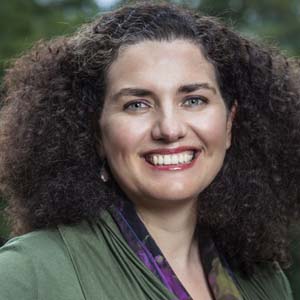If you’re reading this, you might be asking: could I possibly have an eating disorder? And if so, what should I do?
Questions like these are never easy, both to ask or sometimes, to discover the answer. If you’re feeling anxious, nervous or scared, know these feelings are absolutely valid and normal. Eating disorders are very serious and deserve proper attention; they often warrant treatment.
Below are some questions to help you better understand your own situation. The suggestions below are by no means a diagnostic tool, but rather a compass to guide you in the process.
1. How are you referring to your relationship with food?
If you are already referring to your situation as an eating disorder, you should take yourself seriously. There’s a lot of denial and stigma around these illnesses, and if you’ve already come to the conclusion you have one, it’s worth exploring with a professional.
2. How did you feel about your answers on the questionnaires?
You might have visited a few websites and answered some questions about your eating behavior. How did you feel about your answers? Were you relieved that your suspicions were confirmed? Did you minimize your symptoms with thoughts like, “I don’t really do that…it was just that one time because…” and “my eating behaviors are that severe?” Did you skim over the questions and think “I’m probably fine?” or “I can’t deal with this right now?” Your gut is telling you the truth, and your response to “hearing” the truth is very telling. If you feel angry, overwhelmed or “shut down” and numb, take notice of it. Your feelings typically have much to tell you.
3. Is your relationship with food, exercise and your thoughts about your body interrupting your life?
Is it preventing you from having fun, taking appropriate risks or being with friends? Are your thoughts about your body distracting you from enjoying the moment? Do you find body talk dominates your conversations? Do you spend a lot of your energy hiding your behavior with food or exercise from others, in some cases even lying to them? Have people who care about you expressed concern? If there are ongoing negative consequences to your behavior with food and exercise, you have good reason to talk to a professional.
4. Don’t forget, it’s you who is asking the question.
I’ve heard it said plainly this way: “you spot it, you got it.” The vast majority of the time, people that are not in some way struggling with disordered eating patterns do not ask whether or not they have an eating disorder. They almost never ask if they need treatment. In other words, just being here partially answers the question. If you have concerns about yourself, you are probably right on track. Which brings me to my last point…
5. You have some concerns about your situation. Do you need treatment?
The best way to get clear, expert advice is to talk to a trained eating disorders professional. There are therapists, doctors, dieticians and support professionals in many communities ready to help you, and there are many levels of care to meet you where you are in your eating recovery journey. Intensive outpatient treatment (IOP) and partial hospitalization programs (PHP) allow you to continue sleeping in your own bed. Hospital stays (inpatient programming) and residential programs provide more intensive care.
I am glad you are asking the question. There are answers, and there is help for you. You are not alone in this. Reaching out to an eating disorders professional will help you fully answer the question of whether or not you need treatment and the best course of action for you specifically.
Good luck and remember, you are not alone and help is available!
####
 Stephanie Haines, M.Ed., CHES, is the prevention education specialist at Walden Center for Education and Research. Her role is to provide prevention education to school communities including students, teachers and administrators regarding eating disorders, body image and related topics. Before joining Walden, Stephanie was a senior health educator and prevention specialist at the nonprofit organization Freedom from Chemical Dependency (FCD) Educational Services in Newton, where she provided education to students in 50 countries about the prevention of alcohol, tobacco and drug abuse. Earlier in her career, she was a licensed occupational therapist in the Newport, N.H., school district. Stephanie earned her master’s degree from Plymouth State University in New Hampshire, where she served as a graduate assistant to Margaret Burckes-Miller, founder and director of the university’s Eating Disorders Institute. She earned her bachelor’s degree from Granite State College and an associate’s degree from New Hampshire Technical College.
Stephanie Haines, M.Ed., CHES, is the prevention education specialist at Walden Center for Education and Research. Her role is to provide prevention education to school communities including students, teachers and administrators regarding eating disorders, body image and related topics. Before joining Walden, Stephanie was a senior health educator and prevention specialist at the nonprofit organization Freedom from Chemical Dependency (FCD) Educational Services in Newton, where she provided education to students in 50 countries about the prevention of alcohol, tobacco and drug abuse. Earlier in her career, she was a licensed occupational therapist in the Newport, N.H., school district. Stephanie earned her master’s degree from Plymouth State University in New Hampshire, where she served as a graduate assistant to Margaret Burckes-Miller, founder and director of the university’s Eating Disorders Institute. She earned her bachelor’s degree from Granite State College and an associate’s degree from New Hampshire Technical College.







